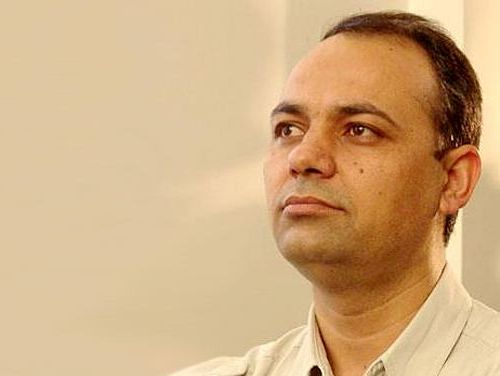Mr Zeid-Abadi is known for an open letter he wrote from prison in 2000 protesting the judiciary’s treatment of imprisoned journalists. The letter was widely distributed despite attempts by authorities to suppress its publication.
His work led Iranian authorities to imprison him again in August on a six-year sentence, and to impose a lifetime ban on practicing his profession as a journalist.
Refused to give in
In making the award, the Board of WAN-IFRA said: "All journalists are aware of the dangers of challenging the autocratic regime of President Mahmoud Ahmadinejad and the actions of Iran’s Supreme Leader, Ali Khamenei. Mr Zeid-Abadi has chosen to repeatedly brave them and publicly support reform and the rule of law in Iran.
He was sentenced to six years in prison, five years in internal exile in the town of Gonabad and a lifetime writing ban in the wake of the disputed presidential election in June. Mr Zeid-Abadi has refused to give in, despite the horrific conditions in which he is being held, and his courage makes us feel very humble. We hope Mr Zeid-Abadi’s sentence will be overturned."
Mr Zeid-Abadi is the second Iranian journalist to receive the prize in recent years, following Akbar Ganji in 2006.
One of "soft revolution" heroes Mr Zeid-Abadi, who has been in and out of prison since 2000, was among dozens of Iranian journalists who were systematically rounded up and detained following the disputed presidential election in June.
Mr Zeid-Abadi, who has been in and out of prison since 2000, was among dozens of Iranian journalists who were systematically rounded up and detained following the disputed presidential election in June.
He was tried in August, along with more than 40 other journalists and 100 prominent supporters of the country’s pro-reform movement, on charges of plotting to overthrow the clerical theocracy with a "soft revolution". He was sentenced to six years in prison. At least twenty-six other journalists are still being held, with some facing sentences ranging from five to nine years.
One week after his trial began, Mr Zeid-Abadi went on a hunger strike to protest his detention, and was hospitalized for 17 days when he was found unconscious in his cell.
Mr Zeid-Abadi, the former chief editor of the Azad newspaper, has appeared in the Tehran-based daily Hamshahari, on the BBC Persian service, and on the Persian/English news site Rooz. He is a member of the Association of Iranian Journalists, and is the elected president of one of Iran’s largest student organisations, the Iranian Alumni Association. He is also a professor of political science, and has lectured at many academic institutions, including the Iranian Studies Group at MIT in Tehran.
Against Koran’s criteria
Mr Zeid-Abadi rose to prominence following his arrest in 2000, and for his letter from prison in which he criticised the judiciary for being "against and in opposition to the Koran’s criteria and measures."
He was released on bail in March 2001, only to be imprisoned against less than a year later, when he was sentenced to serve 23 months and banned for five years from "all public and social activity, including journalism." Released in 2004, he found himself at odds once again with the government during the presidential election of 2005, when he published numerous articles calling for a boycott of the national election.
In an interview following his imprisonment nearly a decade ago, Mr Zeid-Abadi described conditions in the notorious Evin prison this way: "The desperation they create in prison is so bad you think it’s the end of the world. The criminals use rape, especially with newcomers. And when you’re taken everywhere blindfolded and hear horrible, scary screams, and you are put in a tiny cell, you have the feeling you will never see normal life again."
***
The Golden Pen of Freedom is an annual award made by WAN-IFRA to recognise the outstanding action, in writing and deed, of an individual, a group or an institution in the cause of press freedom.
Past winners of the Golden Pen, awarded annually since 1961, include Argentina’s Jacobo Timerman (1980), South Africa’s Anthony Heard (1986), Vietnam’s Doan Viet Hoat (1998), Zimbabwe’s Geoffrey Nyarota (2002), and China’s Shi Tao (2007) and Li Changqing (2008). The 2009 laureate is Najam Sethi of Pakistan.





